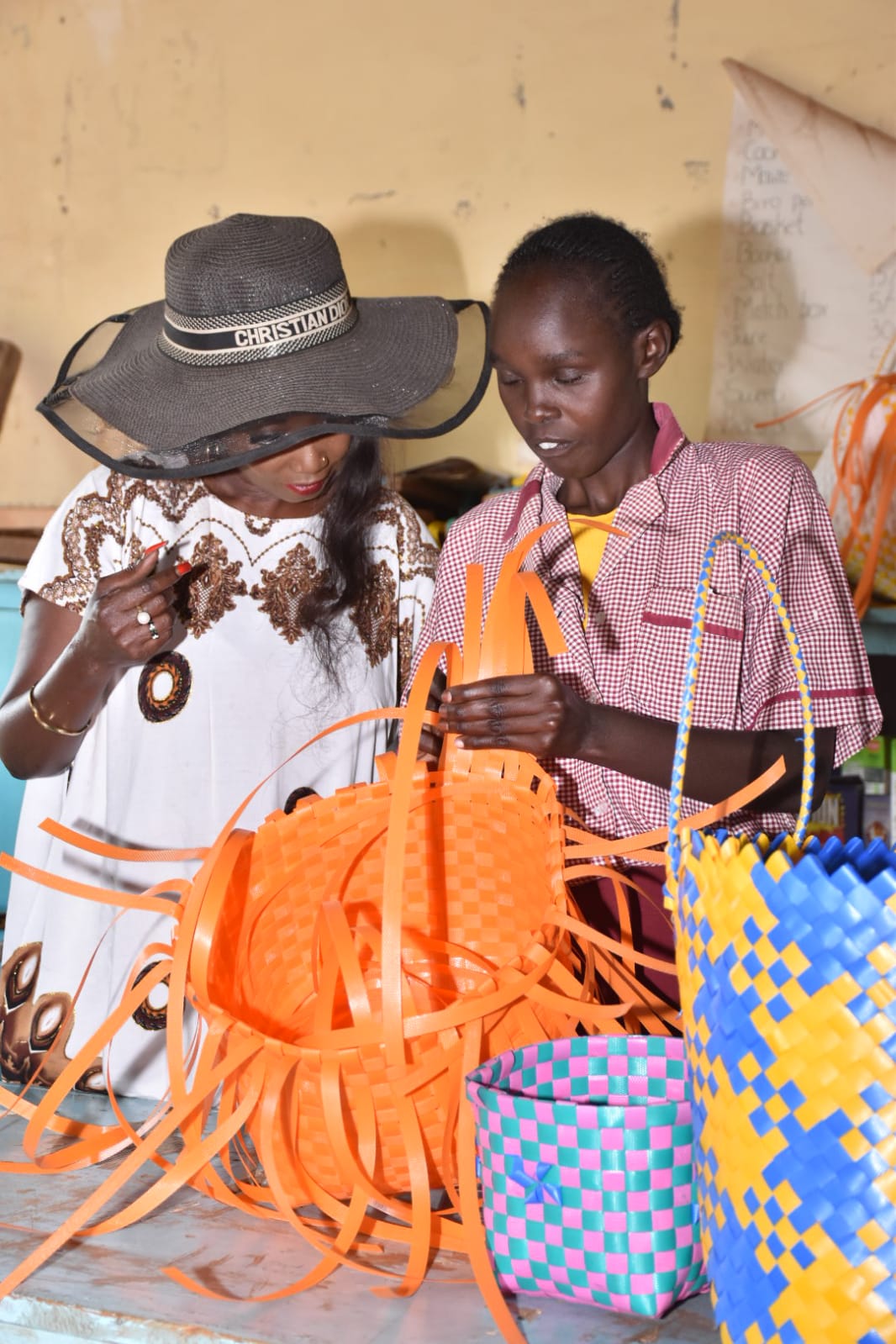
The approach of menstrual management in girls with intellectual disabilities should be the same as it is for other girls but this needs patience and commitment from caregivers.
Teachers at St Teresa’s Special school for the mentally challenged in Webuye East Constituency Bungoma County report that maintaining menstrual hygiene at the school is a toll order for them as most of their students cannot communicate verbally.
Patricia Ogolla, a teacher notes that there are those who do not understand the puberty stage and the changes that occur in their bodies affirming that female teachers have taken up the initiative of ensuring that the girls are informed.
“There are those of them who understand maturity in terms of human maturity, especially the girls we teach they those subjects and they are able to understand their maturity and there are also those who cannot understand so we take them through all those stages in terms of the adolescence experiences that can come in them,” she said.
Ogolla emphasizes that mentally challenged girls need menstrual guidance just like any other woman, noting that they also experience the same stages of growth from childhood to adulthood.
“When it comes to adulthood we advise them to take precaution because they always produce like any other,” she added.
She reveals that the biggest challenge in the school is the usage of the sanitary towels because the girls don’t know how to utilize them during their messes.
“Teachers and matrons are always there to demonstrate to them how sanitary towels are used,” she said.
The United Nations Population Fund (UNFPA) reports that in order to manage their menstrual experiences safely and with dignity, it is imperative that women and girls have access to reliable, accurate and comprehensive information, adequate health facilities, protective materials of their choice and emotionally and physically supportive school and family environments.
UNFPA further states, “Everyone has a right to bodily autonomy. The ability to care for one’s body while menstruating is an essential part of this fundamental freedom. Yet hundreds of millions of people lack access to menstrual products and adequate facilities for menstrual health,”
Charles Wekesa, the Institution’s deputy headteacher, noted that the school is specifically meant for the mentally challenged learners, adding that these are the learners who cannot perform like the normal learners.
He says that the school has taken the stage based pathway to help mentally changed learners access to Education like any other learner.
“Once a learner has been identified as having a mental disability intellectual of mentally he/ she would be brought here at St. Teresa’s school with a referral letter from the assessment center,” Wekesa revealed.
Before a student is admitted at the school, proper clinical assessment is done to ascertain that indeed they are mentally challenged.
“Upon admission to the school, learners start from the foundational level which is the basic learning class. Here they are introduced to school activities like mobility, how to interact with the rest of the students as well as get a now how of where basic facilities like the toilets, dorms, classrooms and dining hall are situated, “explained Wekesa.
Wekesa affirms that there are three foundational levels, level one, two and three that the students undergo, “After foundational level three, the students now move to intermediate class where they are taught pre-vocational skills and undertake the Kenya National Examination known as Kenya Intermediate Learner Educational Assessment and issued a certificate.
“Once the learner has satisfied the intermediate level, then they proceed to Pre-vocational class where they are taught self-reliance. Here they are taught skills that can help them live on their own when they are absorbed into the community, “Said Wekesa.
Despite their shortcomings in attaining physical and mental development, students at St.Teresa are very talented in making handcrafted items which are sold to the community.
They make items such as baskets, key holders, necklaces, ear rings and even bungles, “When well done these items are sold to get money to buy more materials for their learning, “he added.
From the prevocational level they now move to the final class which is the vocational class where they are now taught to be fully independent and make finished products.
Wekesa asserts that once a learner has satisfied teachers at the vocational level that they are fully independent and have perfected the taught skills, they are then graduated into the community.
“As they are released into the community, they are provided with materials to start with the making of products taught and sold so that they are able to sustain themselves, “noted Wekesa.

Facebook Comments